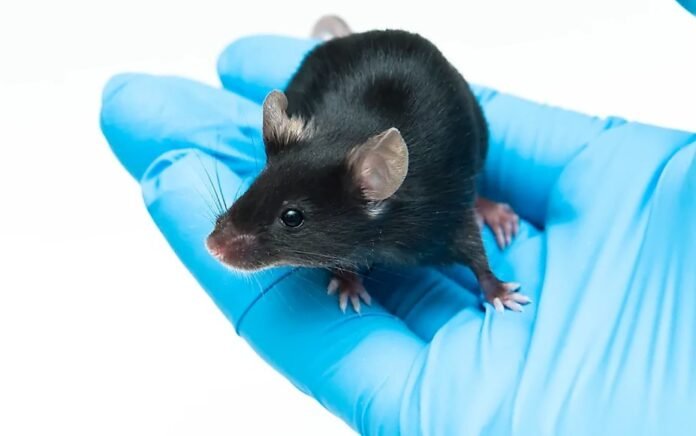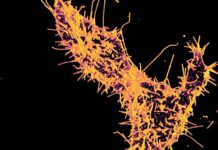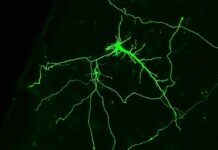Astonishingly, researchers hailing from Peking University in China have unearthed a protein with the potential to revolutionize our understanding of aging. Christened “human coilin-interacting nuclear ATPase protein” (hCINAP), this molecule may hold the key to delaying the aging process by hindering cellular senescence—an insidious culprit in the development of age-related diseases, including cancer. Senescent cells not only stimulate tumor growth in aged organisms but also wreak havoc on young organisms’ tissue integrity.
Probing the Depths of hCINAP
Curiosity piqued, the team delved deeper into hCINAP’s enigmatic influence on senescence. Comparing protein-deficient worms with their unaffected counterparts revealed fascinating insights: the hCINAP-deprived worms not only had shorter lifespans, but they were also noticeably smaller—a sign of hCINAP’s depletion during cellular senescence.
A Cellular Conundrum
The researchers ventured further, experimenting with human and mouse cell lines. Depleting hCINAP levels in these cells, they meticulously quantified the presence of P53 and P16, two senescent biomarkers. Astoundingly, hCINAP overexpression led to a marked decrease in P53 and P16, a consequence of hCINAP’s promotion of P53 degradation.
Deciphering the hCINAP-P53 Connection
As cellular senescence accelerates aging via P53 activity, the researchers posited that hCINAP could exert its influence through this pathway. Utilizing a mouse model with mCINAP (mouse protein) depletion in the skeletal muscle and liver, they exposed young mice to radiation and analyzed tissue samples at various time intervals. The results were striking: mCINAP-depleted mice exhibited an abnormal appearance and elevated senescent biomarkers, and those with hCINAP depletion in skeletal muscles faced a reduced lifespan.
Skepticism Among Experts
Despite the study’s valuable contributions to understanding senescent cells, experts like James Kirkland, a Mayo Clinic physician-scientist, and Michael Petrascheck, a researcher at the Scripps Research Institute, cast doubt on whether these findings will yield an aging “cure.” Kirkland warns that inhibiting cellular senescence might inadvertently promote cancerous cell growth.
A Quest for Healthspan
Kirkland asserts that extending healthspan should take precedence over prolonging lifespan. Though the study hints at hCINAP’s ability to regulate cellular senescence, more research is essential to fully grasp the implications and potential side effects of manipulating hCINAP levels.
Forging Ahead in the Battle Against Aging
The discovery of hCINAP’s role in regulating cellular senescence offers a glimmer of hope in the fight against age-related diseases. However, experts urge caution, as the pursuit of extended life should not overshadow the importance of maintaining good health throughout our years. As we continue to explore the complexities of hCINAP, its potential as a focus for anti-aging research remains promising.
The Road Ahead: Future Research and Applications
The groundbreaking findings surrounding hCINAP’s role in regulating cellular senescence herald a new era in anti-aging research. Scientists must now tread carefully, conducting further studies to elucidate the precise mechanisms by which hCINAP influences aging and to assess the potential risks associated with manipulating its levels.
Advancements in Anti-Aging Therapies
As our understanding of hCINAP and its relationship with cellular senescence deepens, the development of innovative anti-aging therapies may soon follow. These treatments could offer a means to mitigate age-related diseases, ultimately improving overall healthspan and quality of life for millions of individuals worldwide.
Personalized Medicine and Targeted Interventions
The discovery of hCINAP also opens doors for personalized medicine in the realm of aging. By identifying individuals with specific genetic predispositions, healthcare professionals could tailor targeted interventions to counteract the adverse effects of cellular senescence.
Challenges and Ethical Considerations
While the potential benefits of hCINAP research are undeniably exciting, it is crucial to address the ethical concerns and challenges that may arise. Extending human lifespans could have far-reaching implications for society, such as increased population, resource consumption, and socioeconomic disparities.
Striking a Balance: Prioritizing Healthspan
As we forge ahead in our quest to unravel the mysteries of aging, it is essential to maintain a balanced perspective. The focus should be on enhancing healthspan rather than simply prolonging life, ensuring that individuals can live longer, healthier, and more fulfilling lives. This approach will not only benefit individuals but also contribute to a more sustainable and equitable society for all.
In conclusion, the study of hCINAP and its role in cellular senescence marks a significant step forward in our understanding of the aging process. As researchers continue to explore this fascinating protein, we must approach its potential applications with caution and mindfulness, prioritizing the improvement of healthspan and considering the broader implications for society.
Google News | Telegram















